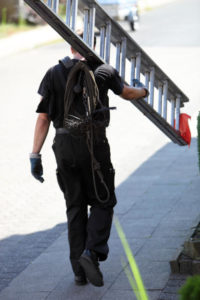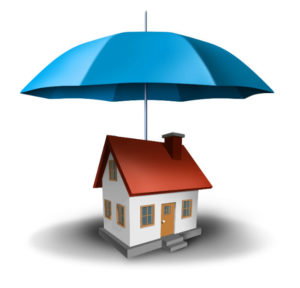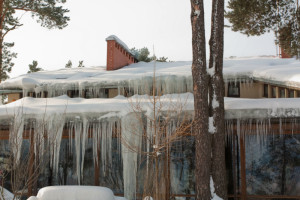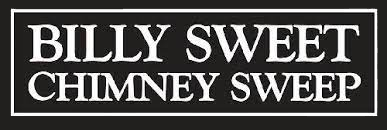by Billy Sweet | Aug 14, 2019 | Chimney Repair
There are many things that can go wrong with your masonry chimney over the years, and water is your chimney’s number one enemy. No matter how well-your chimney is constructed, time and weather can lead to damage called spalling. Many homes experience spalling, though not all homeowners know what it’s called, how to identify it, or what to do about it. At Billy Sweet Chimney Sweep, we can help!
Spalling Masonry
 When mortars crack, flake, and fall away, the bricks can become unstable and even loosen completely. This is called spalling, and it can eventually result in crumbling brick and mortar, which can become a serious hazard if you don’t address it timely. If you notice cracking mortar, gapped masonry, or brick pieces on the roof or yard below, you need to call a certified professional right away to address the proper repairs.
When mortars crack, flake, and fall away, the bricks can become unstable and even loosen completely. This is called spalling, and it can eventually result in crumbling brick and mortar, which can become a serious hazard if you don’t address it timely. If you notice cracking mortar, gapped masonry, or brick pieces on the roof or yard below, you need to call a certified professional right away to address the proper repairs.
Repairing Spalling Masonry
The only way to properly repair spalling masonry is by carefully removing the affected bricks and mortar. A certified chimney sweep will mix new mortar to match the old mortar in strength, consistency, and color. This step is extremely important because failing to match the mortar exactly will result in a weak chimney. Once the mortar is mixed, the bricks are replaced and the result is a fully restored chimney that shows no evidence of a repair.
When the job is done improperly, it can detract from the look of the chimney and decrease your home’s value. This entire process is called tuckpointing or repointing. Only certified professionals should do it, and most amateurs don’t have the proper skills to do it. When you’re scheduling these important services, it’s important to choose chimney experts who have plenty of experience and knowledge of all types of masonry.
Billy Sweet Chimney Sweep Fixes Masonry
No matter the size of your chimney or the type of stone, we can help repair it. At Billy Sweet Chimney Sweep, we have the experience and the technique to get even the toughest jobs done. We know which materials to use and how so that your chimney will expand and contract as necessary. Do you think your chimney masonry needs some attention? Schedule a chimney inspection with our team so that your system is safe and ready for fall.
In addition to tuckpointing, we also repair crowns, flue liners, and leaks. Our team of expert technicians doesn’t just repair damage; we correct the problem that caused the damage in the first place. In order to prevent such damage before it starts, we also offer waterproofing services for all masonry structures.
Our vapor-permeable water repellent allows the chimney to breathe while keeping water molecules from getting through. This product penetrates deeply into the masonry, protecting it and preventing water leaks year after year. Don’t just repair masonry damage, let us help you prevent it. Call Billy Sweet Chimney Sweep at 617-469-4528 or request an appointment online.
by Billy Sweet | Apr 13, 2018 | Leaky Chimney
The problem with a chimney leak is as simple as 1, 2, 3.
1. It ruins your chimney.
2. It ruins your house.
3. It costs you money.
The good news is that chimney leaks are 100 percent preventable. With routine maintenance and annual inspections, your trusted chimney professional will spot a problem before it turns into a leak.
Signs You Have a Leak
Some signs are less noticeable than others. The average homeowner will overlook a chimney leak simply because the affected portion of the chimney is hidden from view. This is why it’s important to hire a certified chimney sweep to clean, inspect, and repair your chimney system.
- Sounds of dripping or visual evidence of dripping in the chimney
- Discoloration of interior or exterior masonry
- Smells of mildew or staleness
- A leak in any part of the house
Even if you don’t see signs on or in the chimney itself, a leak in another part of the house is an indication of a chimney leak. When water is allowed into the home by way of the chimney, it can run for several feet before it stops at the lowest point and forms a leak. This may be several rooms away from the chimney! If you have a leak in any part of your home, call your chimney sweep first. A contractor or handyman may repair the damage, but will not find the cause, because only a chimney professional knows where to look and diagnose the problem.
Let Billy Sweet Chimney Sweep Have a Look
At Billy Sweet, we offer chimney inspections, sweeps, and repairs year-round. You can call today, and we’ll send a technician out to diagnose your chimney problem. The first thing we’ll check is the flashing. Flashing is a collection of thin metal sheets placed along the intersection of chimney and roof to shed water away from this weak point. Oftentimes the flashing is installed incorrectly, has shifted due to weather or animal tampering, or is just worn out. The process of installing flashing is meticulous and must be done by an experienced professional. If your flashing is installed incorrectly, placed incorrectly according to the roof slant or roofing material, or if nails or seams are exposed, it will eventually leak. These types of issues could be identified during a chimney inspection, however, which is why it’s important to schedule one annually.
Other factors that may cause a chimney leak include a faulty, damaged, or missing cap or a cracked or spalling crown. At Billy Sweet Chimney Sweep we install chimney caps, repair and replace chimney crowns, and offer waterproofing services to prevent leaks.
You can schedule waterproofing services now and ensure your chimney is protected from spring showers, summer storms, and a full winter ahead. Don’t let the weather affect your chimney any longer. Schedule services today to have your leak diagnosed and repaired.
Call 617-469-4528 today.
by Billy Sweet | Nov 7, 2017 | Winter Chimney Damage
Like most regions of the country, New England is experiencing a slow start to winter. Your chimney, even when not in use, is still affected by the weather. Our customers in Boston, North Shore, and Portland can expect temperatures to drop toward winter lows by the end of November. In order to avoid winter damage, homeowners should understand how the chimney works, and how water affects masonry.
Winter Damage
Most winter damage is actually water damage. Water simply acts differently in the winter, causing more damage, and wreaking havoc on masonry.
The Freeze/Thaw Cycle
When water penetrates the masonry, it seeps into cracks and voids. As the chimney cools or temperature drops, the water freezes, expanding and breaking apart the masonry. When the chimney warms up again, the water melts and moves further into the damaged masonry. This process continues throughout winter, damaging the chimney itself, and the rest of the system.
Water Damage
Water will ruin a masonry chimney from the inside out. It causes rusted parts and components, stained walls, deteriorated flue lining system, and more. A chimney leak can even cause a leak in any other part of the house when water runs through floors and walls, costing in repairs and even causing respiratory issues when bacteria grows in walls and flooring.
Spalling
Common winter masonry damage includes spalling bricks and mortar. Spalling masonry is when the mortar between bricks cracks and falls away. Homeowners might not notice spalling masonry until pieces of mortar or whole bricks fall into the yard! This is not only a hazard, but allows water into the system to cause damage. A certified chimney sweep can repair spalling masonry through a process called tuckpointing, or re pointing. First, the technician removes the affected mortar, then replaces it with new mortar. This job must be done meticulously, because if the new mortar is not the same consistency and strength as the old, it can result in weakened masonry. If the color is off, it can also affect the visual aesthetics of your chimney.
When you have a chimney, it’s important to protect it from winter damage, including spalling and water damage. You can prevent this occurrence by scheduling your annual chimney inspection with Billy Sweet Chimney Sweep. When your chimney is inspected, your technician can report weaknesses and repair them before cold weather hits. You can also schedule chimney waterproofing to protect your masonry against water damage. This industrial water repellent forms a barrier that keeps water out, while letting vapors escape. When it comes to prevention, waterproofing is a great investment, and is long-lasting.
To schedule you inspection, preventative services, or repairs, call Billy Sweet today. Call 617-469-4528 and talk to a chimney expert about protecting your chimney from the cold.
by Billy Sweet | Sep 27, 2016 | Chimney Masonry Maintenance
There are a lot of things that can go wrong during the life of your chimney including age, natural disasters, and more. The most detrimental thing that can happen to your masonry chimney is water penetration. Your chimney is constructed of a variety of masonry and metal materials, all of which are adversely affected by water. Therefore it is vital to keep them maintained, which most importantly includes waterproofing.
Professional Services, Professional Standards
When you trust a professional with your chimney, you get what you pay for. There are waterproofing products and services that are specially formulated for chimney use. Keep in mind they should only be applied by a professional who is experienced and educated!
Common waterproofing services that Billy Sweet offers include:
- Sealant
These are professional-grade chemical products that should only be applied by a CSIA Certified Chimney Sweep® (CCS). This breathable sealant seals your chimney from water penetration from the outside. Also, the sealant still allows the vapors and smoke to be released through the porous masonry from the inside. This process is important and should not be missed while waterproofing your chimney.
 Flashing
Flashing
Flashing is made up of thin sheets of metal, placed strategically and specifically for your chimney to keep water out. It is placed around the intersection of the chimney and roof. This can be very easily damaged over time. Only a professional chimney sweep knows the best material and best placement of the metal sheets for your chimney and slant of your roof. Choosing the wrong material or placing them improperly can cause shifting and rusting. This allows your chimney to leak.- Chimney Caps
Although they may seem optional, the chimney cap is essential for chimney efficiency and the life of the chimney. It also keeps your family and property safe. The chimney cap keeps rain water and snow from falling into your chimney flue, while still allowing vapors out. The chimney cap can often be damaged or installed improperly, allowing water to fall into the chimney. This can result in rusting parts and damaging masonry through a process of freezing and thawing. Chimney caps also keep wild life out of your chimney, which can cause blockage and fire.
- Chimney Crown
The chimney crown works with the chimney cap to keep water from entering the chimney flue. The chimney crown is a concrete piece that reaches from the flue across the top of the chimney to the edge. It is constructed specifically for your chimney, with a slant to direct water away from the flue and onto the roof. If your chimney sweep reports only minor damage, cracks and pits in your crown, he can recommend and apply a crown coat sealant that will repair and prolong your crown’s life. If more extensive damage exists, your chimney sweep can remove the damaged crown and construct a new, durable crown that will last for years.
When Should You Waterproof?
To avoid damage, high cost repairs, and loss of life and property you should make chimney maintenance a priority. Scheduling your regular chimney sweeps and yearly inspections is the best way to catch a problem before it becomes a problem. By the time a homeowner notices a leak, stain, spalling, or other signs of a leaky chimney there is probably extensive unseen damage. A Billy Sweet Chimney Sweep is experienced and trained to notice risk factors and issues that pose a risk to your chimney system. We put safety first always, and we’re certified to get the job done right.
Call Billy Sweet today or contact us online to schedule an appointment!
by Billy Sweet | Nov 28, 2015 | Freeze Thaw Cycle
You’re likely familiar with the damage the freeze-thaw cycle can do to the roadways; it’s what causes pot holes to appear each year! Water makes its way into the tiny cracks in concrete, asphalt, or stone. When the temperature drops, that water freezes and expands, causing the concrete, asphalt, or stone to crack or crumble. If you have a home with a masonry chimney, you should be aware that the freeze-thaw cycle can cause the same damage to your chimney’s bricks, concrete, and mortar.

Water damage and your chimney
Water can cause many problems with your chimney. The freeze-thaw cycle can cause the mortar between your chimney to crumble; it can cause parts of your brick to flake off, which is referred to as spalling; and it can cause your chimney crown to crack and crumble. Over time, if water damage goes unaddressed, it can mean major problems for your chimney. Your chimney’s overall structure can fail, causing it to lean and become unsafe. A damaged chimney also will let water into the rest of your home, leading to water stains on your ceiling and walls, rotting wood on adjacent structures, collapsed hearth support, a damaged firebox, rusted fireplace accessories, and failing hearth structure.
Repairing water damage
The first step in repairing water damage is to find that damage. This is one reason your annual chimney inspection is so important. Your certified chimney technician can find signs of damage early, so that it can be repaired before minor water damage becomes major water damage. In many cases, it will take the work of expert masons, like those at Billy Sweet Chimney Sweep to repair your chimney’s water damage. We provide services such as tuckpointing, chimney crown repair and replacement, and removing and replacing spalling bricks.
Preventing water damage
When it comes to water damage and your chimney, an ounce of prevention is worth a pound of cure! Taking steps to prevent chimney damage now can save you from costly repairs later. Having a chimney cap installed atop your flue can help keep water from running down the interior walls of your chimney. Repairing a damaged chimney crown will keep water from running down the exterior sides of your chimney. It’s important to make sure the flashing around your chimney is secure, and if your chimney is located on a part of your roof that experiences a lot of rainwater or snow, a cricket — a tent-shaped piece of metal — can be installed to divert water away from the chimney. There also are waterproofing sealants that can be applied to your chimney. Those sealants keep water from seeping into your chimney’s masonry while still allowing your chimney to expel the gases created by your fires.
Ultimately, the key to protecting your chimney from water damage is working with your certified chimney sweep to make sure that any problems are caught and addressed early before you have major chimney damage. If you’re overdue for an inspection, or if you’ve noticed cracking masonry on your chimney, call the experts at Billy Sweet today. We also can talk to you about waterproofing applications to protect your chimney.
 When mortars crack, flake, and fall away, the bricks can become unstable and even loosen completely. This is called spalling, and it can eventually result in crumbling brick and mortar, which can become a serious hazard if you don’t address it timely. If you notice cracking mortar, gapped masonry, or brick pieces on the roof or yard below, you need to call a certified professional right away to address the proper repairs.
When mortars crack, flake, and fall away, the bricks can become unstable and even loosen completely. This is called spalling, and it can eventually result in crumbling brick and mortar, which can become a serious hazard if you don’t address it timely. If you notice cracking mortar, gapped masonry, or brick pieces on the roof or yard below, you need to call a certified professional right away to address the proper repairs.
 Flashing
Flashing